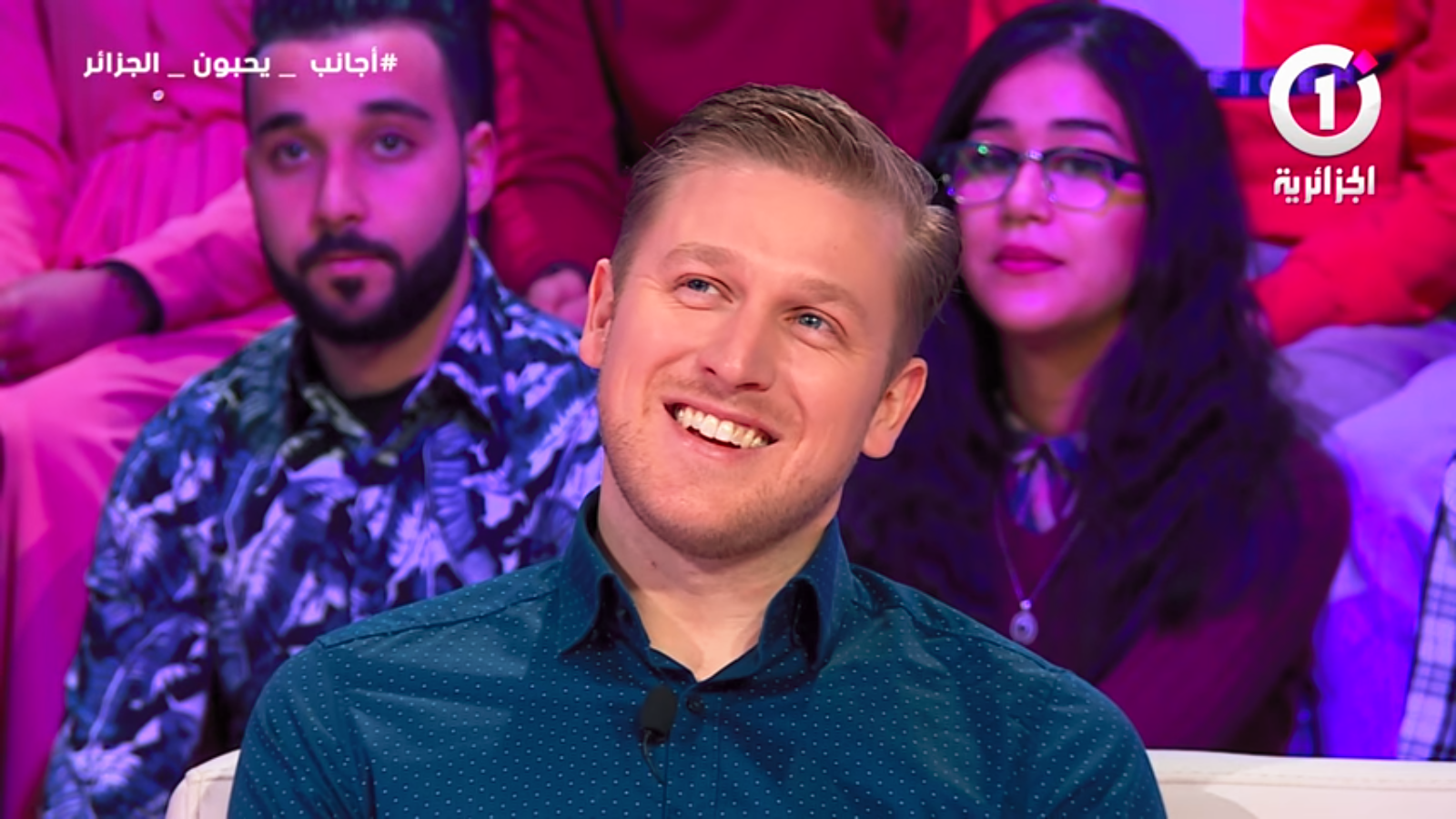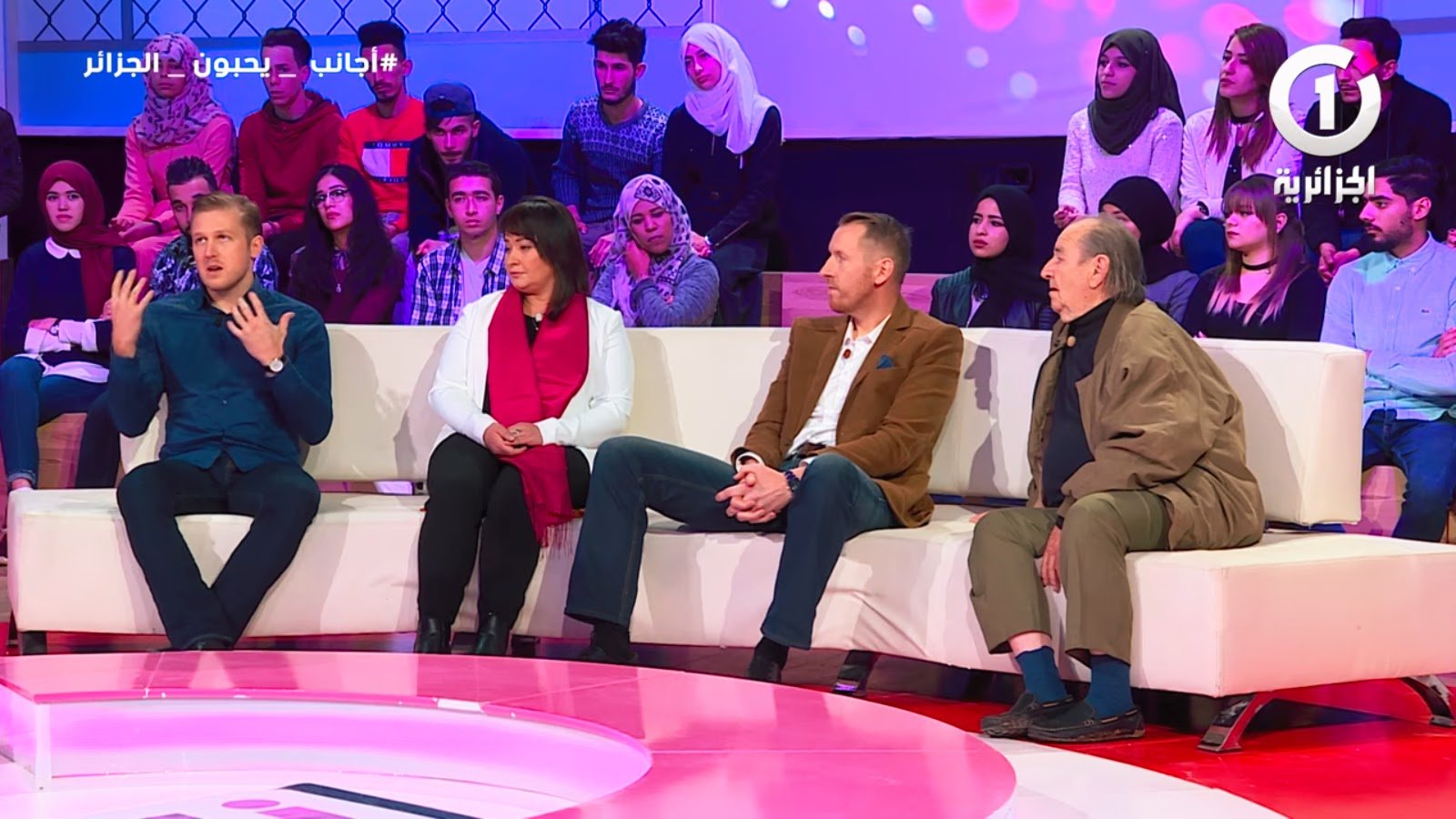People and Stories: "Foreigners Who Love Algeria" Edition
All about my appearance on Arabic-language show "Nass w Hkayet" on Algeria's Djazairia One television.
Last night, Algerian television channel El Djazairia One aired a 90-minute edition of its regular Arabic-language talk show "People and Stories" ("Ness w Hyakat - ناس وحكايات") on the theme of "Foreigners Who Love Algeria" ("أجانب يحبون الجزائر").
I joined Magdoulina from Russia, Jérôme from France, Georges the pied noir of Maltese origin, Hirofumi from Japan, and a local sociologist as guests on the show, which we taped several days earlier in a studio outside Algiers. Interspersed throughout the dialogue were short video profiles the producers had previously recorded at our homes, complete with interviews of our friends. (Thank you to my dear friend Mohamed for his kind words about me!)
While the episode's theme might sound innocuous to outsiders, in this peculiar country it proved provocative—just as the show's producers knew it would. How so? Because the suggestion that foreigners could love Algeria, simply and without reserve, conflicts with the traumatized affection that quite a few Algerians feel for their country, which they love out of genuine patriotism but nonetheless seek to flee, propelled by frustration and lack of opportunity. Allow me to explain:
Host Hicham Bougouffa began the show by channeling his compatriots' incredulity at our choice to settle here. He probed us on our motivations for coming to Algeria and the factors that transformed us from mere visitors into true fans of the place, its people, and its culture. Later, the producers contrasted our words with man-on-the-street clips from a local mall, where they had asked shoppers what they would say to foreigners like us who came to settle in Algeria. ("You're crazy" was the clear consensus response. Just what could make somebody from a country "up there" come "down here" was otherwise inexplicable.)
The host then spent much of the show lobbing us softball questions about our favorite local foods, music, and words. While not explicitly avoiding them, the production team never brought the conversation around to our negative impressions or asked us what problems we observed here. Algeria's trash-strewn streets, neglected historical sites, Kafkaesque bureaucracy, dearth of cultural outlets, sub-par health and education systems, absence of economic and social opportunities for young people, and other shortcomings simply didn't come up. The discussion's positive tone prompted numerous Algerians to later comment online that of course we love Algeria, as foreigners with the means to live well and to leave at any time, unlike the locals who suffer those hardships each day.
They're not wrong. Algeria is a place where the right means can allow you to live comfortably, thus avoiding many of the daily challenges that ordinary citizens face. So isn't a show like this just a white-washing of the real Algeria?
I don't see it that way. I was glad to appear on the show, which I view not as a white-washing but rather as an effort to remind Algerians of their country's unique value. As I said during the show, sometimes it is useful to hear a foreigner's perspective on our own country, since it can reveal truths that we ourselves hadn't noticed. This is especially true in Algeria, where so many have experienced so much frustration, tried for so many years to push against the system, and eventually given up. Today, many Algerians deplore the shoddiness, the filth, the mediocrity all around them, but have decided that they are powerless to influence their surroundings. With time, their frustration subsides into disgusted resignation, and they chose to leave—either mentally (by slipping into a numbed state of apathy) or physically (by emigrating, usually to Europe, as millions have done).
But nothing will make Algeria slide more deeply into mediocrity than the creeping acceptance of mediocrity. Sure, Algeria isn't perfect, just like America isn't (another point I emphasized on the show). But if a few foreigners can come along and remind Algerians that there are great things about their country, that they're not crazy for loving it, and that a better version of it is still worth fighting for, I'd call that worthwhile, not white-washing.
Thank you to the El Djazairia One team for this opportunity. Arabic speakers can watch the full episode on YouTube. Unfortunately, English subtitles are not available at this time.


